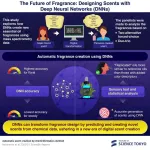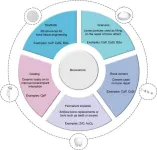CONTACT:
NIAPressTeam@mail.nih.gov, 301-496-1752
Aging may change some brain cells more than others
NIH-funded mouse study provides roadmap for how aging may alter brain cell genetic activity
Based on new brain mapping research funded by the National Institutes of Health (NIH), scientists have discovered that not all cell types in the brain age in the same way. They found that some cells, such as a small group of hormone-controlling cells, may undergo more age-related changes in genetic activity than others. The results, published in Nature, support the idea that some cells are more sensitive to the aging process and aging brain disorders than others.
“Aging is the most important risk factor for Alzheimer’s disease and many other devastating brain disorders. These results provide a highly detailed map for which brain cells may be most affected by aging,” said Richard J. Hodes, M.D., director of NIH’s National Institute on Aging. “This new map may fundamentally alter the way scientists think about how aging affects the brain and also provide a guide for developing new treatments for aging-related brain diseases.”
Scientists used advanced genetic analysis tools to study individual cells in the brains of 2-month-old “young” and 18-month-old “aged” mice. For each age, researchers analysed the genetic activity of a variety of cell types located in 16 different broad regions — constituting 35% of the total volume of a mouse brain.
Like previous studies, the initial results showed a decrease in the activity of genes associated with neuronal circuits. These decreases were seen in neurons, the primary circuitry cells, as well as in “glial” cells called astrocytes and oligodendrocytes, which can support neural signaling by controlling neurotransmitter levels and electrically insulating nerve fibers. In contrast, aging increased the activity of genes associated with the brain’s immunity and inflammatory systems, as well as brain blood vessel cells.
Further analysis helped spot which cell types may be the most sensitive to aging. For example, the results suggested that aging reduces the development of newborn neurons found in at least three different parts of the brain. Previous studies have shown that some of these newborn neurons may play a role in the circuitry that controls some forms of learning and memory while others may help mice recognize different smells.
The cells that appeared to be the most sensitive to aging surround the third ventricle, a major pipeline that enables cerebrospinal fluid to pass through the hypothalamus. Located at the base of the mouse brain, the hypothalamus produces hormones that can control the body’s basic needs, including temperature, heart rate, sleep, thirst, and hunger. The results showed that cells lining the third ventricle and neighbouring neurons in the hypothalamus had the greatest changes in genetic activity with age, including increases in immunity genes and decreases in genes associated with neuronal circuitry.
The authors noted that these observations align with previous studies on several different animals that showed links between aging and body metabolism, including those on how intermittent fasting and other calorie restricting diets can increase life span. Specifically, the age-sensitive neurons in the hypothalamus are known to produce feeding and energy-controlling hormones while the ventricle-lining cells control the passage of hormones and nutrients between the brain and the body. More research is needed to examine the biological mechanisms underlying the findings, as well as search for any possible links to human health.
The project was led by Kelly Jin, Ph.D., Bosiljka Tasic, Ph.D., and Hongkui Zeng, Ph.D., from the Allen Institute for Brain Science, Seattle. The scientists used brain mapping tools — developed as part of the NIH's Brain Research Through Advancing Innovative Neurotechnologies® (BRAIN) Initiative - Cell Census Network (BICCN) — to study more than 1.2 million brain cells, or about 1% of total brain cells, from young and aged mice.
“For years scientists studied the effects of aging on the brain mostly one cell at a time. Now, with innovative brain mapping tools – made possible by the NIH BRAIN Initiative – researchers can study how aging affects much of the whole brain,” said John Ngai, Ph.D., director, The BRAIN Initiative®. “This study shows that examining the brain more globally can provide scientists with fresh insights on how the brain ages and how neurodegenerative diseases may disrupt normal aging activity.”
This study was funded by NIH grants R01AG066027 and U19MH114830.
Researchers can obtain data from the study by going to the following website:
https://assets.nemoarchive.org/dat-61kfys3
Reference: Jin, K. et al. Brain-wide cell-type specific transcriptomic signatures of healthy aging in mice. Nature. 2025 January 1 doi: 10.1038/s41586-024-08350-8
About the National Institute on Aging (NIA): NIA leads the U.S. federal government effort to conduct and support research on aging and the health and well-being of older people. Learn more about age-related cognitive change and neurodegenerative diseases via NIA’s Alzheimer's and related Dementias Education and Referral (ADEAR) Center website. Visit the main NIA website for information about a range of aging topics, in English and Spanish, and stay connected.
The BRAIN Initiative®, a multidisciplinary collaboration across 10 NIH Institutes and Centers, is uniquely positioned for cross-cutting discoveries in neuroscience to revolutionize our understanding of the human brain. By accelerating the development and application of innovative neurotechnologies, The BRAIN Initiative® is enabling researchers to understand the brain at unprecedented levels of detail in both health and disease, improving how we treat, prevent, and cure brain disorders. The BRAIN Initiative involves a multidisciplinary network of federal and non-federal partners whose missions and current research portfolios complement the goals of The BRAIN Initiative.
About the National Institutes of Health (NIH): NIH, the nation's medical research agency, includes 27 Institutes and Centers and is a component of the U.S. Department of Health and Human Services. NIH is the primary federal agency conducting and supporting basic, clinical, and translational medical research, and is investigating the causes, treatments, and cures for both common and rare diseases. For more information about NIH and its programs, visit www.nih.gov.
NIH...Turning Discovery Into Health®
###
END







